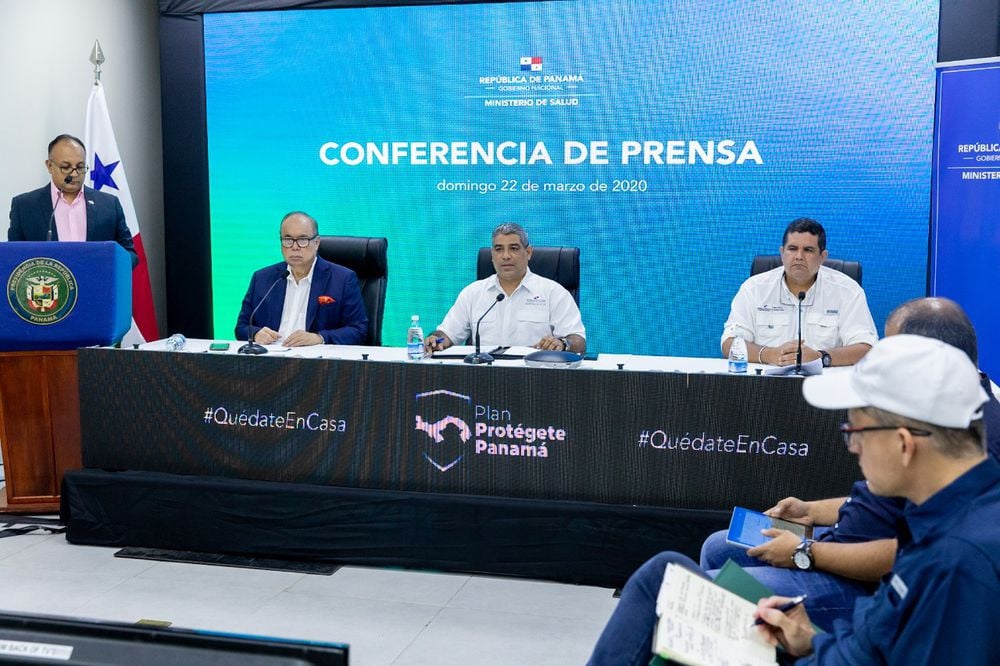Panama is one step ahead in the response to the coronavirus
Panama has responded quickly to the COVID19 epidemic, allocated economic resources, succeeded in sequencing the virus genome to quickly diagnose cases that appear in the country, strengthened its health system and taken steps to isolate citizens. The heads of the UN agencies in the country believe that there are lessons to be exported to other Latin American countries.
The small Central American country has surpassed 100 cases, but for the moment there is only one death. Panama "has always been one step ahead," said Gerardo Alfaro, the Pan American Health Organization's representative in the country in an interview with UN News. One of the keys has been to start the diagnostic tests quickly. "It has allowed us to confirm and rule out cases very early on," says the PAHO representative. Also, they have taken them to all the national territory. "The investments that were made in equipment for real-time PCR (testing kits) for HIV and TB are being used. These same kits are used to run coronavirus tests that give results in half an hour," he explains.
In Panama, there are 25 kits distributed throughout the country, including in remote areas such as indigenous comarcas. The Ministry of Health is acquiring the necessary reagents to have tests in remote places quickly.
Also, tests are not only done in hospitals. "Doctors go to the home, with their protective equipment, take the sample and it is processed," says Alfaro, who explains that there are 20 technical teams with doctors and nurses. The epidemiological surveillance system receives the results and notifies the patients.
Panama took steps to prevent the collapse of the hospitals. Each hospital can "reconvert beds", giving early discharges, can suspend non-urgent surgeries, and rotate medical and nursing staff. "Staff must know the protocols and have the equipment. It's key not to have infected medical staff," says Alfaro.
The organization's representative believes that another good decision was to appoint an intensive care team coordinator. "This allows us to quickly update an inventory of the resources that each institution has in the public sector and also in the private sector and articulate it as a single network. At the moment, nine patients, 8 percent of those infected, are in critical condition, admitted to an intensive care unit, and may require assisted ventilation.
"They quickly set up shop and we have already received 50 additional ventilators. We have already seen modular hospital design for severe COVID-19 patients only. They have made available 20 containers for mobile clinics. The entire inventory of tents was purchased, a total of 25 for respiratory triage," Alfaro explains.
"Imagine that there is a critical patient in the private sector and his coverage is exhausted and he has to be transferred to the public sector. This means contaminating an additional ward. These coordination mechanisms have allowed us to make regulations more flexible, and there is a commitment from the insurance association to share resources, optimize those resources, and be more efficient in the response," he adds.
Panama has a public and private health system. In the public sector, the Social Security system covers 80% of the population (not necessarily with effective access). The Ministry of Health has responsibility for the other 20% of the uninsured population but owns 80% of the clinics and hospitals.
"On a day-to-day basis we see a lot of cross-subsidization. Many people with insurance are served in Ministry facilities. At the moment, there are no strict verification mechanisms and we are all articulated in one network at the functional level. The director of social security sits down every day with the team working with the minister, who is in charge as the national authority," Alfaro explains.
The United Nations resident coordinator in the country, César Núñez, provides another key to the response: the large presence of scientists in the country. "The Gorgas Memorial Institute reported Tuesday that it managed to make the first sequencing of the SARSCoV2 (coronavirus) virus in a case imported into Panama. "This will allow, knowing the strain circulating in Panama, to adapt the vaccines when they become available," he explained.


